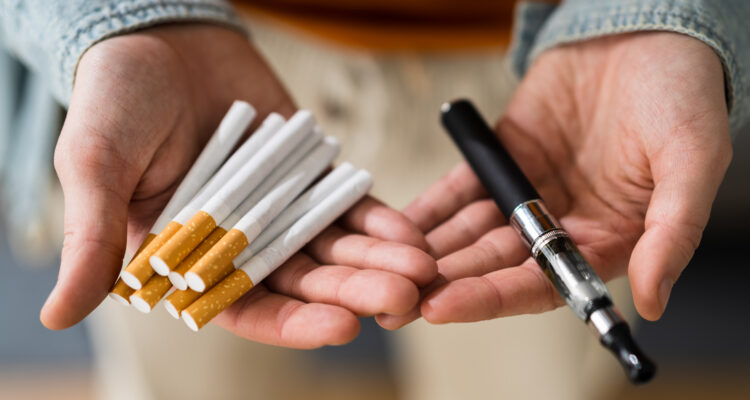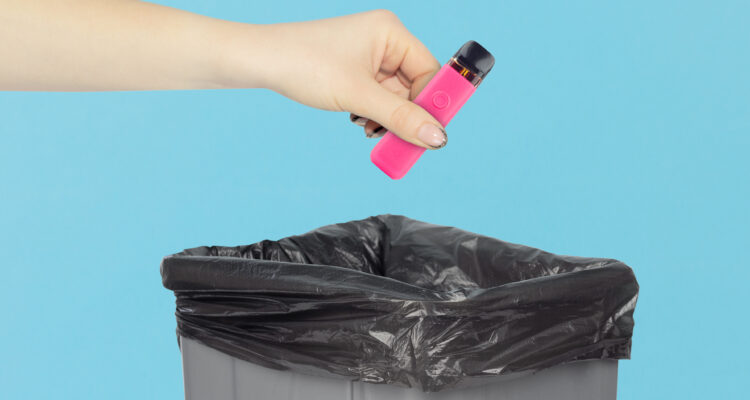When there is so much information at our fingertips, often with contradictory messages, it can be difficult to know what to believe.
On the one hand, large vaping companies are seeing their products banned and lawsuits filed against them for encouraging an unhealthy practice. But on the other hand, the NHS is supporting vaping, and vape shops across the UK.
But context is key.
Neither smoking or vaping is safe
We should all know the damage smoking inflicts on our lungs, our heart, our circulation and more. We know it’s addictive, we know it increases cancer risk and leads to chronic breathing problems. It is a major drain on our health service too – which is why there are free ‘stop-smoking’ support services available to anyone.
The NHS supports the use of vaping to stop smoking.
In comparison to smoking, vaping is safer and the NHS supports the use of vaping to help people transition away from smoking cigarettes. However, the aim is ultimately stop smoking and vaping altogether. Research shows vaping can be an effective tool to get there – around twice as many people stop smoking by switching to vaping first, compared to using nicotine patches or gum.
Knowing the risks of vaping
But that is very different from saying that vaping is safe and that it is fine for non-smokers to start vaping. Studies have shown several problems that can arise from vaping – in whatever form. The risks of vaping include:
1. Nicotine exposure
Vaping can allow you to take in higher doses of nicotine, which is highly addictive – it’s just as easy to ramp up as it is to dial down. Research shows that younger, teenage brains may be more sensitive to the effects of nicotine.
2. Other ingredients can carry risk too
Vaping also carries a risk due to the other components in vape pens and liquids, which can include propylene glycol, glycerol, acrolein, acetaldehyde, acetamide, formaldehyde, metal and silicate particles and more. We don’t yet know the long-term effects of some of these chemicals used to flavour or preserve the fluid, and not all vapes and associated products that you can buy online or in shops have been safety checked. But new research has shown that vaping can cause similar DNA changes to cigarette use, with alterations in gene expression, epigenetic changes and other biological changes that could foster disease.
3. Vape devices can be dangerous
Some disposable vape devices on sale are illegal and do not meet UK quality and safety regulations. Burn injuries have occurred as a result of batteries that may be of inferior quality and prone to causing explosions in vaping devices[1].
4. Vaping may encourage new users
The perception that vaping is safe, along with aggressive marketing, numerous flavour varieties, lower cost compared to cigarettes, and greater social acceptability is encouraging new users, especially amongst younger people. Even cigarette smokers, who are using vaping as a way of stopping, often end up continuing the vape habit instead.
All of the above mean it’s illegal to sell nicotine vaping products to anyone under 18. Plus, it is illegal for adults to buy them on their behalf.
So, by all means use vaping as a way of cutting your nicotine addiction. It’s a great first step. But aim to stop the smoking habit completely.
And, please don’t be persuaded to start vaping as a non-smoker, in the belief that it’s safe. It’s not! Your lungs were designed to function on fresh air alone. And they will thank you if you can keep it that way!
If you need more help to stop smoking check out the free NHS stop-smoking support services.



